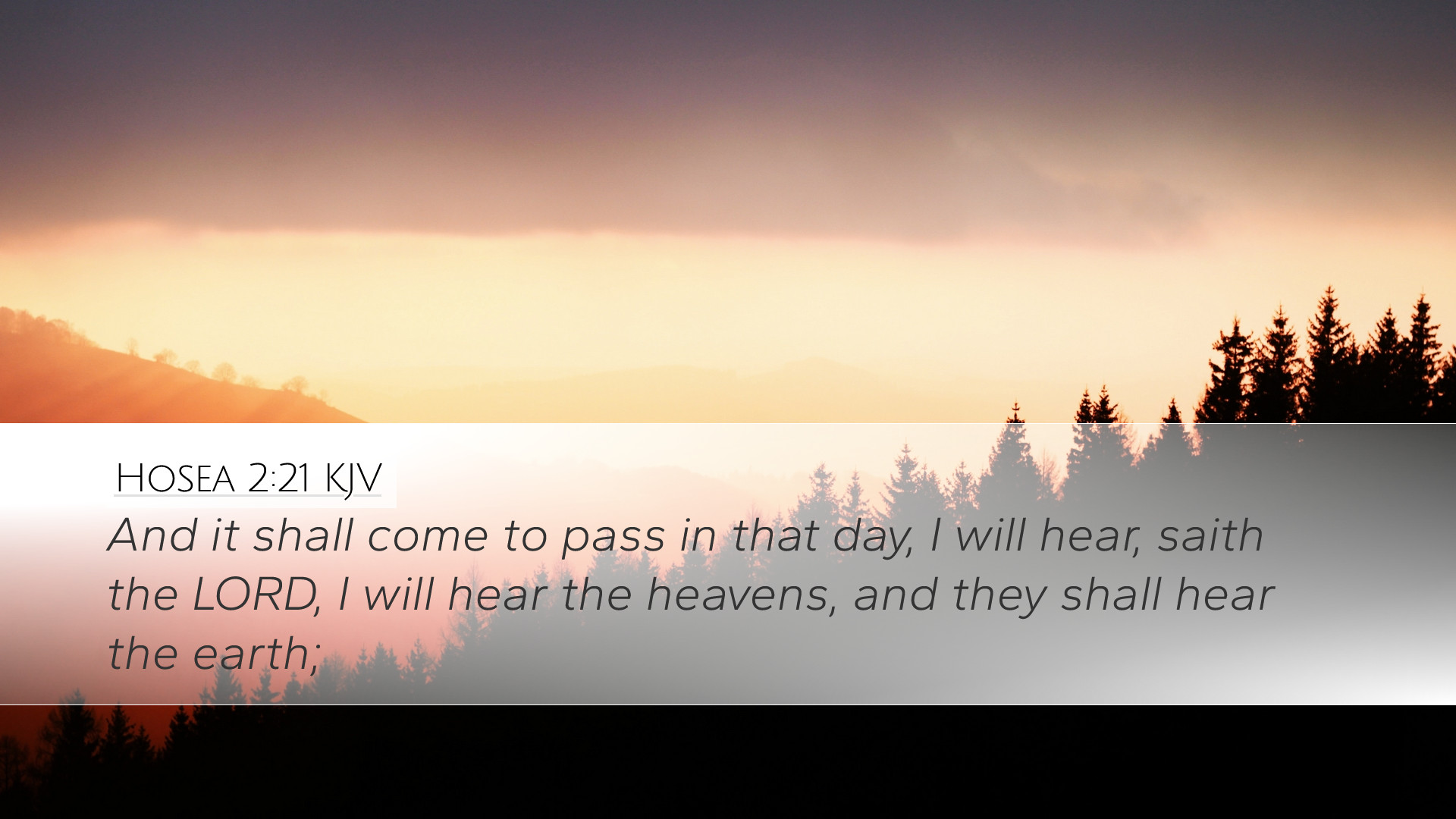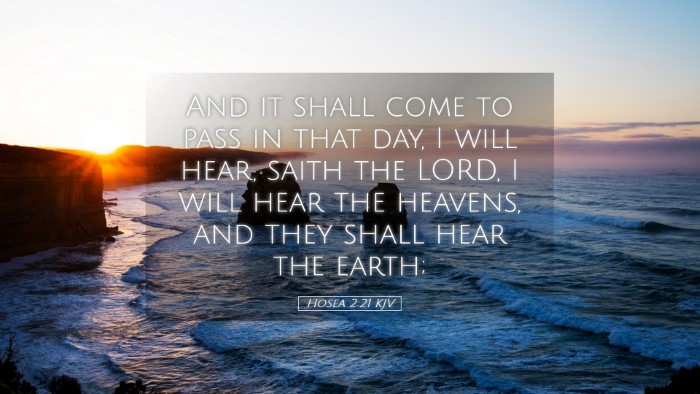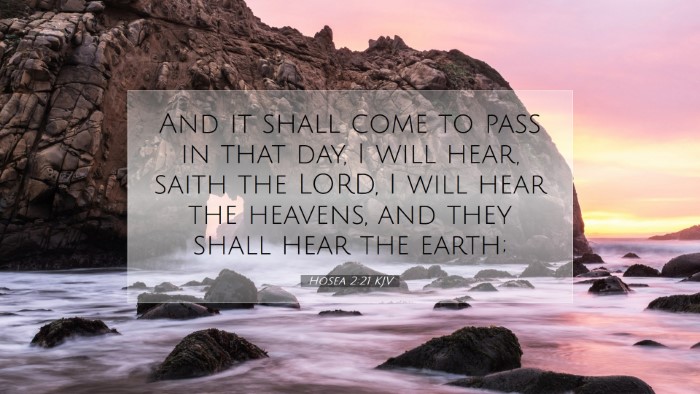Old Testament
Genesis Exodus Leviticus Numbers Deuteronomy Joshua Judges Ruth 1 Samuel 2 Samuel 1 Kings 2 Kings 1 Chronicles 2 Chronicles Ezra Nehemiah Esther Job Psalms Proverbs Ecclesiastes Song of Solomon Isaiah Jeremiah Lamentations Ezekiel Daniel Hosea Joel Amos Obadiah Jonah Micah Nahum Habakkuk Zephaniah Haggai Zechariah MalachiHosea 2:21
Hosea 2:21 KJV
And it shall come to pass in that day, I will hear, saith the LORD, I will hear the heavens, and they shall hear the earth;
Hosea 2:21 Bible Commentary
Bible Commentary on Hosea 2:21
Verse Reference: Hosea 2:21 (ESV): "And in that day I will answer, declares the Lord, I will answer the heavens, and they shall answer the earth."
Introduction
This verse in the book of Hosea encapsulates a significant covenant relationship between God, humanity, and the created order. The imagery of God answering the heavens, which in turn respond to the earth, reflects a profound theological truth about divine favor and restoration. This commentary seeks to uncover the layers of meaning within Hosea 2:21 through the insights provided by notable public domain commentators.
Divine Response and Covenant Faithfulness
Matthew Henry's Commentary: Henry elucidates that the declaration of God answering suggests His readiness to engage with His creation. He emphasizes that God's responses are heralds of restoration, especially in the context of Israel’s unfaithfulness and subsequent judgment. Henry notes that God's answer signifies a restoration not only in relationships between God and His people but also within the created order itself.
Albert Barnes' Notes: Barnes underlines the significant theological assertion of reciprocity in divine communication. He suggests that the promise of God answering the heavens indicates a divinely established order where both the spiritual and physical realms are interconnected. The heavens responding to the earth implies that the blessings from heaven are contingent upon the earth’s condition, particularly in terms of the people’s faithfulness and repentance.
The Image of Restoration
Adam Clarke's Commentary: Clarke highlights that this verse is situated within a larger narrative of restoration following repentance. He notes that in "that day" refers to a future time of divine intervention and restoration. Clarke interprets this day as one in which the people of Israel will turn back to God, resulting in a harmonious relationship among God, His people, and the land.
The Eschatological Perspective
Matthew Henry: Henry suggests that this verse also holds eschatological implications, foreshadowing the ultimate redemption that would come through Christ. The interconnectedness of heaven and earth may symbolize the full realization of God's kingdom, where all creation is restored and responds in harmony.
Albert Barnes: Barnes posits that this "day" could refer not only to immediate restoration after exile but also to the church age, where believers can expect the fulfillment of God's promises. He connects the responses of heaven and earth to the consistent theme of divine providence where the faithful can anticipate God's provision based on their spiritual state.
Contextual Significance
Adam Clarke: Examining the context of Hosea, Clarke notes the recurrent theme of Israel's infidelity contrasted with God's unwavering love. This verse signifies a turning point, where after judgment, a pathway back to relationship and blessing is established. Clarke encourages readers to see this as a call to introspection regarding the state of their own relationship with God.
The Interdependence of Creation
Both Barnes and Clarke reflect on the interdependence presented in this verse. The response of the heavens to the earth suggests a theological truth about God's creation working in unity. The earth symbolizes God's people who, through genuine repentance and relationship, can expect the surrounding creation (the heavens) to respond favorably.
Pastoral Application
Matthew Henry emphasizes the importance: Pastors should remind their congregations of the assurance that God desires to communicate with His creation. There is a divine eagerness to act in response to prayers and repentance. This draws the believer into a deeper relationship with God and serves as an encouragement to faithfully seek Him in times of trouble, believing that He will restore.
Conclusion
The contemplation of Hosea 2:21 reveals layers of meaning around God's responsive nature and the hope of restoration intertwined with the themes of creation and covenant. Through the insights of classic commentators like Matthew Henry, Albert Barnes, and Adam Clarke, this verse invites theologians, students, and pastors alike to reflect on their relationship with God and the hope that accompanies repentance and restoration.


